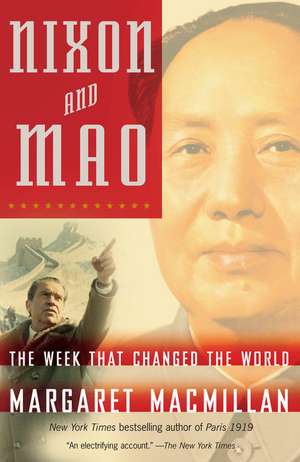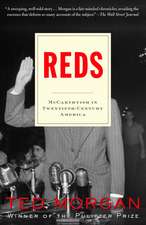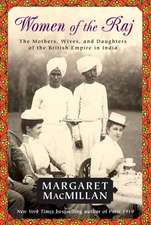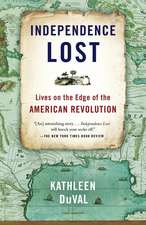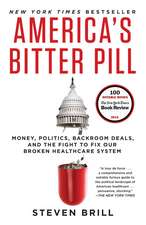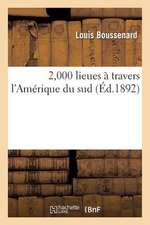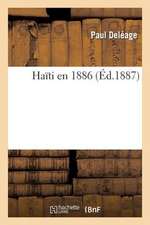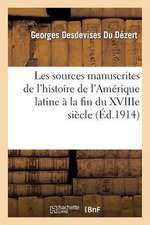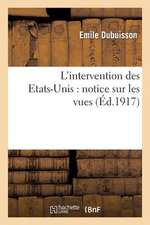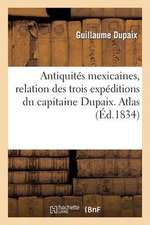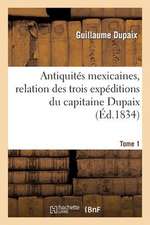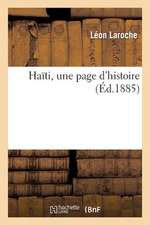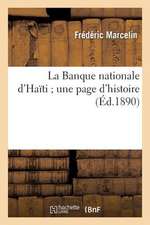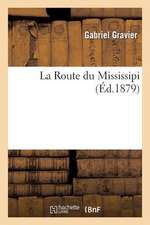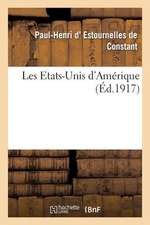Nixon and Mao: The Week That Changed the World
Autor Margaret Macmillanen Limba Engleză Paperback – 29 feb 2008
That monumental meeting in 1972–during what Nixon called “the week that changed the world”–could have been brought about only by powerful leaders: Nixon himself, a great strategist and a flawed human being, and Mao, willful and ruthless. They were assisted by two brilliant and complex statesmen, Henry Kissinger and Chou En-lai. Surrounding them were fascinating people with unusual roles to play, including the enormously disciplined and unhappy Pat Nixon and a small-time Shanghai actress turned monstrous empress, Jiang Qing. And behind all of them lay the complex history of two countries, two great and equally confident civilizations: China, ancient and contemptuous yet fearful of barbarians beyond the Middle Kingdom, and the United States, forward-looking and confident, seeing itself as the beacon for the world.
Nixon thought China could help him get out of Vietnam. Mao needed American technology and expertise to repair the damage of the Cultural Revolution. Both men wanted an ally against an aggressive Soviet Union. Did they get what they wanted? Did Mao betray his own revolutionary ideals? How did the people of China react to this apparent change in attitude toward the imperialist Americans? Did Nixon make a mistake in coming to China as a supplicant? And what has been the impact of the visit on the United States ever since?
Weaving together fascinating anecdotes and insights, an understanding of Chinese and American history, and the momentous events of an extraordinary time, this brilliantly written book looks at one of the transformative moments of the twentieth century and casts new light on a key relationship for the world of the twenty-first century.
Margaret MacMillan is the author of Women of the Raj and Paris 1919: Six Months That Changed the World, which won the Duff Cooper Prize, the Samuel Johnson Prize for Non-Fiction, the Hessell-Tiltman Prize for History, a Silver Medal for the Arthur Ross Book Award of the Council on Foreign Relations, and the Governor General’s Literary Award for nonfiction. It was selected by the editors of The New York Times as one of the best books of 2002. Currently the provost of Trinity College and a professor of history at the University of Toronto, MacMillan takes up the position of warden of St. Antony’s College, Oxford, in July 2007. She is an officer of the Order of Canada, a fellow of the Royal Society of Literature, and a senior fellow of Massey College at the University of Toronto.
From the Hardcover edition.
Preț: 153.12 lei
Nou
Puncte Express: 230
Preț estimativ în valută:
29.30€ • 30.53$ • 24.26£
29.30€ • 30.53$ • 24.26£
Carte disponibilă
Livrare economică 13-27 martie
Preluare comenzi: 021 569.72.76
Specificații
ISBN-13: 9780812970579
ISBN-10: 0812970578
Pagini: 404
Ilustrații: 16-PP PHOTO SECTION; 2 MAPS
Dimensiuni: 132 x 203 x 25 mm
Greutate: 0.36 kg
Editura: Random House Trade
ISBN-10: 0812970578
Pagini: 404
Ilustrații: 16-PP PHOTO SECTION; 2 MAPS
Dimensiuni: 132 x 203 x 25 mm
Greutate: 0.36 kg
Editura: Random House Trade
Notă biografică
Margaret MacMillan is the author of Women of the Raj and Paris 1919: Six Months That Changed the World, which won the Duff Cooper Prize, the Samuel Johnson Prize for Non-Fiction, the Hessell-Tiltman Prize for History, a Silver Medal for the Arthur Ross Book Award of the Council on Foreign Relations, and the Governor General’s Literary Award for nonfiction. It was selected by the editors of The New York Times as one of the best books of 2002. Currently the provost of Trinity College and a professor of history at the University of Toronto, MacMillan takes up the position of warden of St. Antony’s College, Oxford, in July 2007. She is an officer of the Order of Canada, a fellow of the Royal Society of Literature, and a senior fellow of Massey College at the University of Toronto.
From the Hardcover edition.
From the Hardcover edition.
Extras
CHAPTER 1
SETTING OUT
On Thursday, February 17, 1972, President and Mrs. Nixon walked out to the south lawn of the White House, where a helicopter waited for them. A small crowd, among them Vice President Spiro Agnew and his wife, Republican and Democratic congressmen, and the two Nixon daughters, Tricia and Julie, saw them off as they started the first leg of their long trip to China. The brief ceremony was carried live on American radio and television. Nixon spoke briefly. He was making, he said, “a journey for peace,” but, he added, he was under no illusions that “twenty years of hostility between the People’s Republic of China and the United States of America are going to be swept away by one week of talks that we will have there.” Nevertheless, he was going in an optimistic spirit: “If there is a postscript that I hope might be written with regard to this trip, it would be the words on the plaque which was left on the moon by our first astronauts when they landed there: ‘We came in peace for all mankind.’ ” It was classic Nixon, that mixture of pragmatism and grandiloquence.
Inside the waiting plane at Andrews Air Force Base, the rest of Nixon’s party, which included his secretary of state, William Rogers, and his national security adviser, Henry Kissinger, watched the ceremonies on television. Winston Lord, a young aide to Kissinger, joked nervously that if the plane blew up, they would all see themselves going sky high. As Nixon was boarding the plane, one of the waiting reporters handed him an atlas of China that had the seal of the CIA on its cover. “Do you think they’ll let me in with this?” asked the president, sharing a rare joke with the press as he climbed aboard Air Force One.
He, the man who had made his name as a dogged and vociferous anti- Communist, was reversing two decades of American policy by traveling to Beijing, into the very heart of Chinese Communism. As the plane climbed into the air, Nixon felt like an explorer: “We were embarking,” he said in his memoirs, “upon a voyage of philosophical discovery as uncertain, and in some respects as perilous, as the voyages of geographical discovery of a much earlier time period.”
He was taking a considerable gamble: that conservatives at home would not attack him and that liberals would not be disappointed in the results of his trip. He was pleased by the many fervent messages he had received wishing him well—but also concerned. “I told Henry that I thought it really was a question of the American people being hopelessly and almost naïvely for peace, even at any price,” he recalled. Kissinger was, as always, reassuring. Americans were excited by the boldness of Nixon’s move.
Nixon also did not know whether the Chinese themselves would overcome their decades of hostility to the United States and make his visit a success. Although every detail of his trip had been negotiated with the Chinese, Nixon did not know, when he clambered aboard his plane, whether he would have a meeting with Chairman Mao Tse-tung, who, from his seclusion in Beijing, still controlled China. If Nixon came back to the United States without having met Mao, his trip would be regarded as a failure and, worse, a humiliation for the United States.
After the trip was over, the Nixon people always maintained that they’d felt quite confident about a meeting. “Well, we knew in our gut,” said Winston Lord, “that Mao would meet Nixon.” The Americans had no firm promise, though, only vague assurances from the Chinese. “I know,” Lord remembered, “that we made unilateral statements that Nixon would, of course, be seeing Mao. We said that we would like to know when this would be, but we knew that this was going to happen. It would have been unthinkable if it didn’t.”
It was a gamble that Nixon was prepared to take because he felt that it was crucial for the United States. He had always taken risks—as a young soldier in the army, when he passed the time (and made a lot of money) playing poker, and, later, as a politician. He had not spent those long and often difficult years making his way to the presidency to be a caretaker. And the United States needed some good news. The war in Vietnam had cost the country much, in lives, in money, and in reputation. It had led to deep divisions at home and a loss of influence and prestige abroad. The failure of the United States to finish, much less win, the war had contributed to a decline in American power. But it had only contributed; the extraordinary military and economic dominance that the United States had possessed from the end of the Second World War to the start of the 1960s could not last forever.
That dominance had been, in part, the product of the times. In 1945, other world powers lay defeated or, like Britain, so weakened by the huge costs of victory that they could no longer play a world role. The Soviet Union had great military strength and, by 1949, its own atomic bomb, but it had to make good the hideous costs of Hitler’s invasion and of the war. By the end of the 1960s, though, western Europe and Japan had revived. The Soviet Union, although it would never be an economic power to match the United States, was investing heavily in its military. Newly independent countries such as India were playing their parts in the world. China’s potential remained a question mark; the Communists had brought unity, but for much of the time since 1949 Mao’s policies had sent the country down wasteful and destructive paths. Nevertheless, the Chinese revolution had become a model and an inspiration in many Third World countries.
Throughout the 1960s, Nixon worked on a political career that most people thought was over after his defeat by John F. Kennedy in the presidential race of 1960 and his even more humiliating failure to win the governorship of California in 1962. And he continued to develop his ideas on his favorite area of public policy, international relations. In the summer of 1967, he was invited to California to give the Lakeside Speech at Bohemian Grove, an institution that could only exist in North America, where rich and powerful men enjoy the arts and the simple, contemplative life for a couple of weeks in carefully rustic luxury. Nixon later said that he got more pleasure out of that speech—“the first milestone on my road to the presidency”—than any other in his career. In what would become known as the Nixon Doctrine, he argued that the United States could no longer afford to fight other nations’ wars. Although the United States would offer support, its allies must be prepared to stand on their own feet. On the other hand, there were encouraging signs on the world scene. The Soviet leaders were still striving for Communist domination of the world, but they did not want war with the United States. Moreover, the Communist monolith had broken apart and China and the Soviet Union were at loggerheads. Nixon came to this realization, he told Chou when they finally met, in those years in the 1960s when he was out of office and traveling about the world.
Nixon, it has often been said, especially by his supporters, was the only American president of the late twentieth century who could have taken advantage of the split in the Communist world and made the breakthrough in China-U.S. relations. The man and the times were right for each other. As Nixon himself once told an interviewer, the mark of a leader “is whether he can give history a nudge.” For the United States to refuse to deal with a major Asian power and one, moreover, that was the world’s most populous country had never made much sense. As Nixon himself had written in a 1967 article in Foreign Affairs, “Taking the long view, we simply cannot afford to leave China forever outside the family of nations, there to nurture its fantasies, cherish its hates and threaten its neighbors.” In a revealing comparison, he said that dealing with China was like dealing with angry blacks in America’s ghettos: “In each case a potentially destructive force has to be curbed; in each case an outlaw element has to be brought within the law; in each case dialogues have to be opened.” In the short term, China would simply have to be contained; in the longer term, though, it ought to be brought back into the community of nations. His article did not show the slightest sympathy for Chinese Communism; nor did it hold out much hope for an immediate change in China’s relations with the world. By the time he was president, however, Nixon was starting to become more optimistic. In the election campaign, he repeated his warnings about the dangers of leaving China outside the international system and referred obliquely to it in his inaugural address in January 1969: “We seek an open world—open to ideas, open to the exchange of goods and people—a world in which no people, great or small, will live in angry isolation.”
By the early 1970s, both the United States and China realized that the world had changed and that they needed new friends. As Henry Kissinger, Nixon’s national security adviser and close collaborator, wrote years later, “For both sides necessity dictated that a rapprochement occur, and the attempt had to be made no matter who governed in either country.” And while public opinion did not matter in China, it did in the United States, and Americans, by and large, no longer felt the antipathy and fear toward Chinese Communism that had been such a feature of American politics in the 1950s.
Moreover, Nixon had banked the political capital he needed at home. Dealing with Communists was always tricky during the Cold War. American public opinion had been slow to recognize the threat from the Soviet Union immediately after the Second World War, but once convinced that the threat was real, it had become seized with the idea that Communists were very powerful and that they were everywhere, in Russia, in the center of Europe, in Asia, and throughout American society. Nixon himself had ridden to power by calling to those fears, no matter how exaggerated they sometimes were. His anti-Communist credentials were beyond challenge. From the time he had first entered politics in California, running against the liberal Democrat Jerry Voorhis in 1946, he had charged that his opponents were soft on Communism or worse. Nixon’s campaigning, with its insinuation and accusation and its reliance on unproven statistics and stories, won him the name “Tricky Dick,” but it worked. Americans listened to his repeated and forceful warnings about the threat that Communism posed to the United States and to American society. They watched as he stood up to Communists around the world, whether swapping boasts with the Soviet leader Nikita Khrushchev in Moscow or defying the mobs who spat at him and tried to turn his car over in Venezuela.
Nixon’s other great advantage was that he had the determination, the intelligence, and the knowledge to sense the currents in history and to take advantage of them. And he loved foreign policy. Indeed, he much preferred it to dealing with importunate congressmen and the minutiae of schools or highway building. “I’ve always thought this country could run itself domestically without a President,” he told the journalist Theodore White in an interview during the presidential campaign. “All you need is a competent Cabinet to run the country at home. You need a President for foreign policy; no Secretary of State is really important; the President makes foreign policy.” While presidents had always given State of the Union addresses to Congress, Nixon also started making annual reports on the world situation. And he made it quite clear from the moment he took office that he was going to use an enhanced National Security Council to run major foreign policy issues out of the White House. His first appointment, the morning after his inauguration in January 1969, was with his national security adviser, Henry Kissinger. The first formal meeting he called was of his new NSC. Six weeks later, he was off on his first foreign trip, to see European leaders, among them a man he revered, Charles de Gaulle.
In the long and rambling conversations he had with his few intimates, Nixon returned constantly to the subject of the great leader, the man who boldly went on ahead, dragging his nation with him and changing the world. De Gaulle, of course. Winston Churchill—a favorite, it seems, with many American presidents, including George W. Bush. And General George Patton. The movie, starring George C. Scott, was one of Nixon’s favorites, and he kept a biography of Patton beside his bed. Such great leaders, in Nixon’s view, were usually lonely and often misunderstood, but they nevertheless worked indefatigably to advance the interests of their nations. “There were never tired decisions,” he told Kissinger in one of their phone conversations, “only tired commanders.”
The world, with its great issues, was, for Nixon, where the leader could show what he was made of. He had prepared himself thoroughly for this moment. As vice president, he had traveled more than any of his predecesors; in the 1960s, before his run for president, when he was meant to be a private citizen, he had toured the world incessantly, meeting with local leaders and browbeating American diplomats as though he were still in office. A low-ranking foreign service officer who had to entertain him in Hong Kong remembered his “tremendous intellectual curiosity.” Nixon asked question after question, “picking my brain for everything and anything I could tell him about China.” Marshall Green, later assistant secretary of state with responsibility for East Asia during the Nixon administration, met Nixon in Indonesia in 1967 and had long conversations with him, which Nixon tape-recorded for later reference. “I remembered him as the best informed on foreign affairs of all the luminaries who visited Jakarta during my four years there,” Green said. The result of all the travel and the hours of questioning and conversation was that Nixon was the best-prepared president on foreign policy until Clinton. He also knew many foreign heads of state and foreign ministers personally.
From the Hardcover edition.
SETTING OUT
On Thursday, February 17, 1972, President and Mrs. Nixon walked out to the south lawn of the White House, where a helicopter waited for them. A small crowd, among them Vice President Spiro Agnew and his wife, Republican and Democratic congressmen, and the two Nixon daughters, Tricia and Julie, saw them off as they started the first leg of their long trip to China. The brief ceremony was carried live on American radio and television. Nixon spoke briefly. He was making, he said, “a journey for peace,” but, he added, he was under no illusions that “twenty years of hostility between the People’s Republic of China and the United States of America are going to be swept away by one week of talks that we will have there.” Nevertheless, he was going in an optimistic spirit: “If there is a postscript that I hope might be written with regard to this trip, it would be the words on the plaque which was left on the moon by our first astronauts when they landed there: ‘We came in peace for all mankind.’ ” It was classic Nixon, that mixture of pragmatism and grandiloquence.
Inside the waiting plane at Andrews Air Force Base, the rest of Nixon’s party, which included his secretary of state, William Rogers, and his national security adviser, Henry Kissinger, watched the ceremonies on television. Winston Lord, a young aide to Kissinger, joked nervously that if the plane blew up, they would all see themselves going sky high. As Nixon was boarding the plane, one of the waiting reporters handed him an atlas of China that had the seal of the CIA on its cover. “Do you think they’ll let me in with this?” asked the president, sharing a rare joke with the press as he climbed aboard Air Force One.
He, the man who had made his name as a dogged and vociferous anti- Communist, was reversing two decades of American policy by traveling to Beijing, into the very heart of Chinese Communism. As the plane climbed into the air, Nixon felt like an explorer: “We were embarking,” he said in his memoirs, “upon a voyage of philosophical discovery as uncertain, and in some respects as perilous, as the voyages of geographical discovery of a much earlier time period.”
He was taking a considerable gamble: that conservatives at home would not attack him and that liberals would not be disappointed in the results of his trip. He was pleased by the many fervent messages he had received wishing him well—but also concerned. “I told Henry that I thought it really was a question of the American people being hopelessly and almost naïvely for peace, even at any price,” he recalled. Kissinger was, as always, reassuring. Americans were excited by the boldness of Nixon’s move.
Nixon also did not know whether the Chinese themselves would overcome their decades of hostility to the United States and make his visit a success. Although every detail of his trip had been negotiated with the Chinese, Nixon did not know, when he clambered aboard his plane, whether he would have a meeting with Chairman Mao Tse-tung, who, from his seclusion in Beijing, still controlled China. If Nixon came back to the United States without having met Mao, his trip would be regarded as a failure and, worse, a humiliation for the United States.
After the trip was over, the Nixon people always maintained that they’d felt quite confident about a meeting. “Well, we knew in our gut,” said Winston Lord, “that Mao would meet Nixon.” The Americans had no firm promise, though, only vague assurances from the Chinese. “I know,” Lord remembered, “that we made unilateral statements that Nixon would, of course, be seeing Mao. We said that we would like to know when this would be, but we knew that this was going to happen. It would have been unthinkable if it didn’t.”
It was a gamble that Nixon was prepared to take because he felt that it was crucial for the United States. He had always taken risks—as a young soldier in the army, when he passed the time (and made a lot of money) playing poker, and, later, as a politician. He had not spent those long and often difficult years making his way to the presidency to be a caretaker. And the United States needed some good news. The war in Vietnam had cost the country much, in lives, in money, and in reputation. It had led to deep divisions at home and a loss of influence and prestige abroad. The failure of the United States to finish, much less win, the war had contributed to a decline in American power. But it had only contributed; the extraordinary military and economic dominance that the United States had possessed from the end of the Second World War to the start of the 1960s could not last forever.
That dominance had been, in part, the product of the times. In 1945, other world powers lay defeated or, like Britain, so weakened by the huge costs of victory that they could no longer play a world role. The Soviet Union had great military strength and, by 1949, its own atomic bomb, but it had to make good the hideous costs of Hitler’s invasion and of the war. By the end of the 1960s, though, western Europe and Japan had revived. The Soviet Union, although it would never be an economic power to match the United States, was investing heavily in its military. Newly independent countries such as India were playing their parts in the world. China’s potential remained a question mark; the Communists had brought unity, but for much of the time since 1949 Mao’s policies had sent the country down wasteful and destructive paths. Nevertheless, the Chinese revolution had become a model and an inspiration in many Third World countries.
Throughout the 1960s, Nixon worked on a political career that most people thought was over after his defeat by John F. Kennedy in the presidential race of 1960 and his even more humiliating failure to win the governorship of California in 1962. And he continued to develop his ideas on his favorite area of public policy, international relations. In the summer of 1967, he was invited to California to give the Lakeside Speech at Bohemian Grove, an institution that could only exist in North America, where rich and powerful men enjoy the arts and the simple, contemplative life for a couple of weeks in carefully rustic luxury. Nixon later said that he got more pleasure out of that speech—“the first milestone on my road to the presidency”—than any other in his career. In what would become known as the Nixon Doctrine, he argued that the United States could no longer afford to fight other nations’ wars. Although the United States would offer support, its allies must be prepared to stand on their own feet. On the other hand, there were encouraging signs on the world scene. The Soviet leaders were still striving for Communist domination of the world, but they did not want war with the United States. Moreover, the Communist monolith had broken apart and China and the Soviet Union were at loggerheads. Nixon came to this realization, he told Chou when they finally met, in those years in the 1960s when he was out of office and traveling about the world.
Nixon, it has often been said, especially by his supporters, was the only American president of the late twentieth century who could have taken advantage of the split in the Communist world and made the breakthrough in China-U.S. relations. The man and the times were right for each other. As Nixon himself once told an interviewer, the mark of a leader “is whether he can give history a nudge.” For the United States to refuse to deal with a major Asian power and one, moreover, that was the world’s most populous country had never made much sense. As Nixon himself had written in a 1967 article in Foreign Affairs, “Taking the long view, we simply cannot afford to leave China forever outside the family of nations, there to nurture its fantasies, cherish its hates and threaten its neighbors.” In a revealing comparison, he said that dealing with China was like dealing with angry blacks in America’s ghettos: “In each case a potentially destructive force has to be curbed; in each case an outlaw element has to be brought within the law; in each case dialogues have to be opened.” In the short term, China would simply have to be contained; in the longer term, though, it ought to be brought back into the community of nations. His article did not show the slightest sympathy for Chinese Communism; nor did it hold out much hope for an immediate change in China’s relations with the world. By the time he was president, however, Nixon was starting to become more optimistic. In the election campaign, he repeated his warnings about the dangers of leaving China outside the international system and referred obliquely to it in his inaugural address in January 1969: “We seek an open world—open to ideas, open to the exchange of goods and people—a world in which no people, great or small, will live in angry isolation.”
By the early 1970s, both the United States and China realized that the world had changed and that they needed new friends. As Henry Kissinger, Nixon’s national security adviser and close collaborator, wrote years later, “For both sides necessity dictated that a rapprochement occur, and the attempt had to be made no matter who governed in either country.” And while public opinion did not matter in China, it did in the United States, and Americans, by and large, no longer felt the antipathy and fear toward Chinese Communism that had been such a feature of American politics in the 1950s.
Moreover, Nixon had banked the political capital he needed at home. Dealing with Communists was always tricky during the Cold War. American public opinion had been slow to recognize the threat from the Soviet Union immediately after the Second World War, but once convinced that the threat was real, it had become seized with the idea that Communists were very powerful and that they were everywhere, in Russia, in the center of Europe, in Asia, and throughout American society. Nixon himself had ridden to power by calling to those fears, no matter how exaggerated they sometimes were. His anti-Communist credentials were beyond challenge. From the time he had first entered politics in California, running against the liberal Democrat Jerry Voorhis in 1946, he had charged that his opponents were soft on Communism or worse. Nixon’s campaigning, with its insinuation and accusation and its reliance on unproven statistics and stories, won him the name “Tricky Dick,” but it worked. Americans listened to his repeated and forceful warnings about the threat that Communism posed to the United States and to American society. They watched as he stood up to Communists around the world, whether swapping boasts with the Soviet leader Nikita Khrushchev in Moscow or defying the mobs who spat at him and tried to turn his car over in Venezuela.
Nixon’s other great advantage was that he had the determination, the intelligence, and the knowledge to sense the currents in history and to take advantage of them. And he loved foreign policy. Indeed, he much preferred it to dealing with importunate congressmen and the minutiae of schools or highway building. “I’ve always thought this country could run itself domestically without a President,” he told the journalist Theodore White in an interview during the presidential campaign. “All you need is a competent Cabinet to run the country at home. You need a President for foreign policy; no Secretary of State is really important; the President makes foreign policy.” While presidents had always given State of the Union addresses to Congress, Nixon also started making annual reports on the world situation. And he made it quite clear from the moment he took office that he was going to use an enhanced National Security Council to run major foreign policy issues out of the White House. His first appointment, the morning after his inauguration in January 1969, was with his national security adviser, Henry Kissinger. The first formal meeting he called was of his new NSC. Six weeks later, he was off on his first foreign trip, to see European leaders, among them a man he revered, Charles de Gaulle.
In the long and rambling conversations he had with his few intimates, Nixon returned constantly to the subject of the great leader, the man who boldly went on ahead, dragging his nation with him and changing the world. De Gaulle, of course. Winston Churchill—a favorite, it seems, with many American presidents, including George W. Bush. And General George Patton. The movie, starring George C. Scott, was one of Nixon’s favorites, and he kept a biography of Patton beside his bed. Such great leaders, in Nixon’s view, were usually lonely and often misunderstood, but they nevertheless worked indefatigably to advance the interests of their nations. “There were never tired decisions,” he told Kissinger in one of their phone conversations, “only tired commanders.”
The world, with its great issues, was, for Nixon, where the leader could show what he was made of. He had prepared himself thoroughly for this moment. As vice president, he had traveled more than any of his predecesors; in the 1960s, before his run for president, when he was meant to be a private citizen, he had toured the world incessantly, meeting with local leaders and browbeating American diplomats as though he were still in office. A low-ranking foreign service officer who had to entertain him in Hong Kong remembered his “tremendous intellectual curiosity.” Nixon asked question after question, “picking my brain for everything and anything I could tell him about China.” Marshall Green, later assistant secretary of state with responsibility for East Asia during the Nixon administration, met Nixon in Indonesia in 1967 and had long conversations with him, which Nixon tape-recorded for later reference. “I remembered him as the best informed on foreign affairs of all the luminaries who visited Jakarta during my four years there,” Green said. The result of all the travel and the hours of questioning and conversation was that Nixon was the best-prepared president on foreign policy until Clinton. He also knew many foreign heads of state and foreign ministers personally.
From the Hardcover edition.
Descriere
Weaving together fascinating anecdotes and insights, an understanding of Chinese and American history, and the momentous events of an extraordinary time, this work looks at one of the transformative moments of the 20th century.
